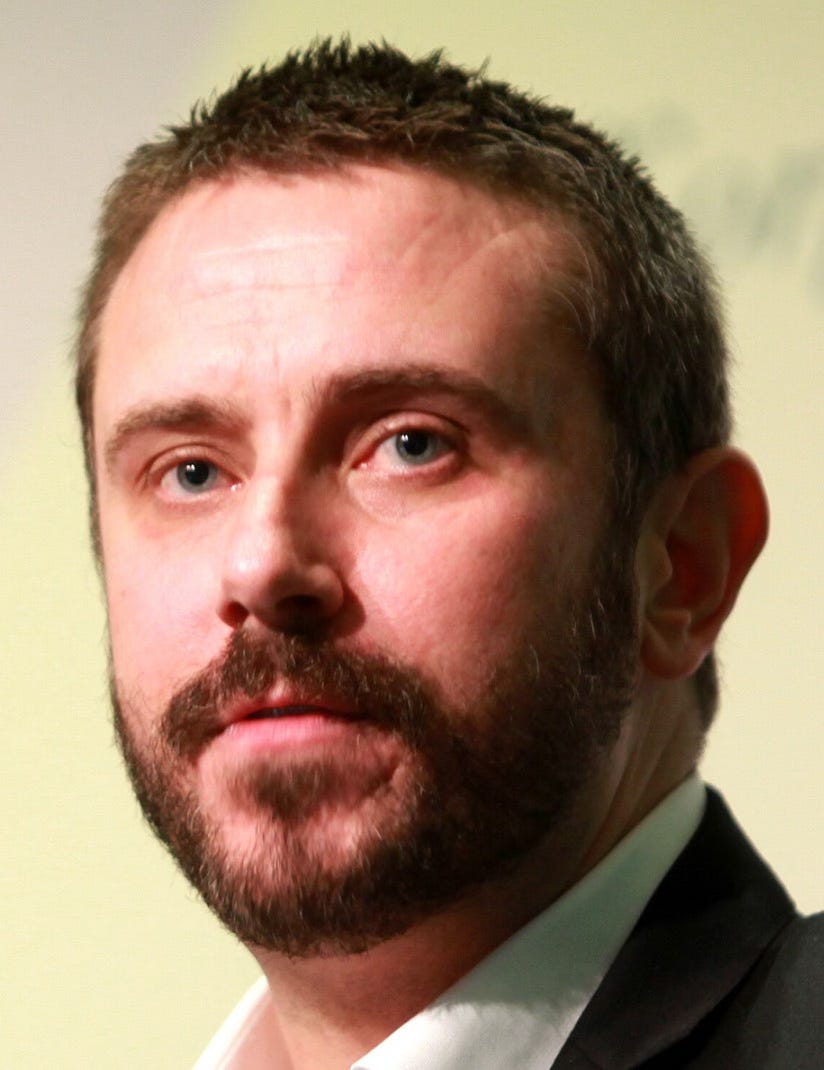Why You Should Stop Trusting “War Experts” on TV — And Who Deserves Your Attention
The Jack Hopkins Now Newsletter #379
Why You Should Stop Trusting “War Experts” on TV — And Who Deserves Your Attention
(Photo: Jeremey Scahill, award-winning investigative journalist)
[FREE SECTION]
Let’s get real: when it comes to war, cable news is full of pundits. They’re polished, confident, and often unquestioned. But behind the suits and the stern tones lie all-too-frequent conflicts of interest — and far too much spin.
They’re too often selling the story they were paid to tell.
What most viewers don’t realize is that the selection of "experts" on your screen is no accident. Networks carefully curate these panels not just for insight, but for the optics of legitimacy.
Having a retired general or a think tank fellow nodding along on your show isn’t about balanced debate — it’s about lending weight to decisions that often favor the defense establishment.
Consider this: during the early months of the Afghanistan and Iraq wars...dozens of military analysts appeared on cable news to advocate for escalations…airstrikes…and troop surges.
Very few, if any…disclosed their financial ties to military contractors that stood to profit from those very conflicts.
These are not minor oversights — these are conflicts that can shape public sentiment and policy.
When a war is sold to the public…the pitchmen aren’t always in uniform. Sometimes they’re in suits…with polished graphics…speaking in sound bites carefully crafted to keep you watching, but not necessarily thinking.
This matters because the next time your screen flashes with another "breaking news" alert from the frontlines of the next war — you should be asking:
Who’s getting paid to say what I’m hearing right now?
The rest of this issue of JHN will give you a precise roadmap for how to tell when you’re being sold a narrative…and when you’re hearing the truth.
It will show you who’s worth trusting and who deserves to be challenged…no matter how many times they’ve been on TV.
The Problem: Pundits Don’t Always Have Integrity
These aren’t random retirees sharing their opinions — they’re carefully selected TV fixtures…sometimes financed by big military contractors.
The Public Accountability Initiative found 22 commentators with undisclosed ties who appeared 111 times on air — with fewer than 13 disclosures about those ties.
In 2009, New York Times journalist David Barstow exposed this cozy Pentagon-media relationship — retired generals hired for favorable TV commentary that doubled as PR for the defense industry.
So when you see “General So-and-So” supporting a strike…ask the hard question: Are they speaking freely — or consulting for the weapons they push?
Why It Matters: You Deserve Truth, Not Salesmanship
When pundits cheerlead wars without full transparency — or without understanding the real stakes — they’re not guiding us.
They’re shaping narratives to fit agendas. And in matters of war…that’s dangerous.
Remember Iraq in 2002–03?
While most of the national press was busy carrying water for the administration…there was a small…often ignored group of reporters who got it right.
Jonathan Landay and Warren Strobel at the Knight Ridder DC Bureau weren’t buying what the big players were selling.
They dug in, asked the questions others wouldn’t…and ran stories that flat-out challenged the so-called "slam-dunk" intelligence about weapons of mass destruction and phantom links to Al-Qaeda.
They were dismissed by their peers.
Some of their own Knight Ridder papers refused to run their stories. The big dogs at The New York Times and The Washington Post? They were too busy parroting official talking points.
But when the dust settled and the truth came out…guess who stood tall? Landay and Strobel.
They didn’t just report — they held the line. They earned the Raymond Clapper Memorial Award…and they did it by being exactly the kind of dissenting voices we should have been listening to from day one.
But on TV? Mostly you heard certainty, not skepticism.
Today, whether it’s Iran, Israel, or Ukraine, the chattery "expert" panels rarely hold power to account. They echo official lines and seldom ask "what if they’re wrong?"




